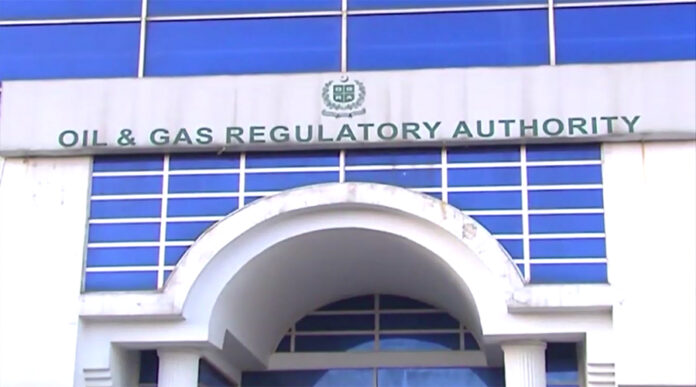ISLAMABAD: Instead of brining approximately 1,500 Liquefied Petroleum Gas (LPG) bowsers in the tax net, the Oil and Gas Regulatory Authority (OGRA)’s Member Gas has allegedly held in abeyance the directive of the Deputy Executive Director to all companies regarding obtaining license for each bowser.
OGRA’s Deputy Executive Director LPG Aziz Ullah Khan, through a letter (dated January 1, 2020), had directed all LPG bowser companies to apply with the Authority within 15 days to obtain a license for each of their bowser(s).
“The companies that will not apply within the stipulated time frame may not be able to uplift/transport/decant LPG within the country,” the directive read.
As per section 23 (2) (d) of the OGRA Ordinance 2002, and Rule 2 (sa), Rule 3, and Rule 5 of LPG (Production and Distribution) Rules 2001, the LPG transportation is a regulated activity and requires a license from OGRA.
However, the OGRA Member Gas, while setting aside the directions of the DED LPG through a letter (dated January 10), just asked all LPG companies and concerned stakeholders to ensure that LPG bowsers used for transportation be fit for the purpose of having valid CIE licenses, fitness certificate from the relevant RTAs (Road Transport Authority), and comprehensive product and third party insurance to ensure the safety of operations and mitigation of third party risk.
“The Authority is considering streamlining LPG bowser licensing regime, which is likely to take some time. The country/industry and its economy cannot afford to suspend LPG, shutdown LPG supplies to the market and suspend LPG production from oil fields/refineries/LPG terminals. “In view thereof, OGRA’s above mentioned letters are held in abeyance,” the letter further stated.
Earlier, in another letter (dated October 29, 2019) issued to all LPG marketing companies, all LPG producers, LPG terminals, LPG air mix plants and LPG auto refueling stations were advised to get licence as the services of un-licensed LPG bowsers should not be hired by any company.
A former OGRA official, seeking anonymity, told this scribe that the LPG bowser license was a regulated activity under OGRA Ordinance 2002 and LPG (Production and Distribution) rules 2001.
He said around 1,500 LPG bowsers were operating in the country while licensing fee of each LPG bowser defined in the LPG Rules 2001 was Rs25,000 besides processing charges.
The official said total processing charges for obtaining license of 1,500 LPG bowsers should be around Rs15 million, alleging the Member Gas had so far caused revenue loss of approximately Rs50 million by not bringing owners/companies of LPG bowsers in the tax net.
He added the LPG companies were not willing to obtain LPG bowser license because of tax while the OGRA’s license procedures were strict with reference to ensuring safety.
When contacted, OGRA spokesperson Imran Ghaznavi said although the authority in its regulatory meeting No 19 of 2019 had decided to go for individual LPG bowser licensing, however the Member Gas while taking cognizance of LPG crisis had given time to the industry until revised licensing mechanism was in place.
He said the Authority was in the process of reviewing unnecessary documentation, third party inspections, and duplication of licensing to ease the process of LPG bowser licensing without compromising the safety of public and property.
The spokesperson further said the Authority had so far issued three licenses to two LPG marketing companies for their LPG bowsers and received Rs300,00 on account of license fee.
As per Rules 2001, an amount of Rs25,000 is charged for license renewal fee for a bowser, he said.





[…] خبر 3 فروری کو پاکستان ٹوڈے نے شائع کی جس کے جواب میں اوگرا نے کہا ، ’’اگرچہ 2002ء […]